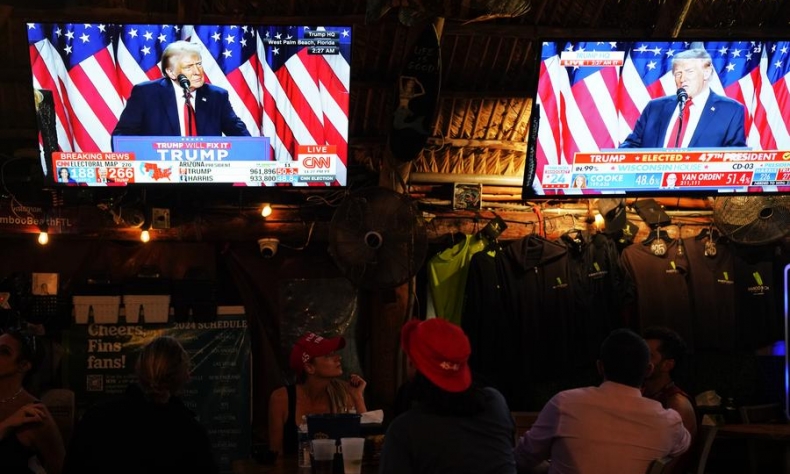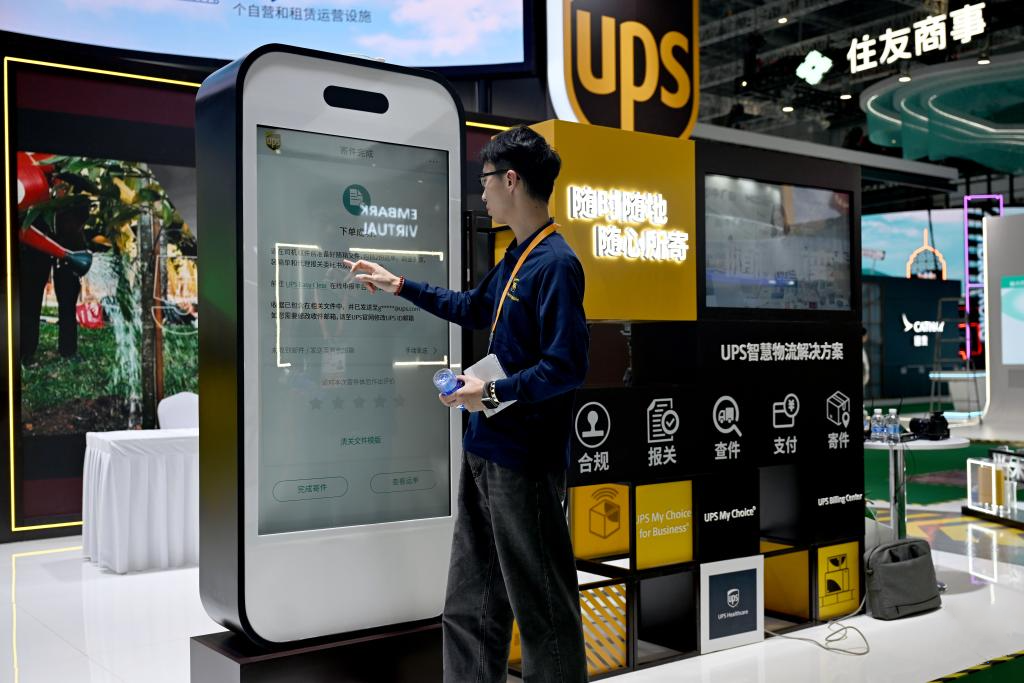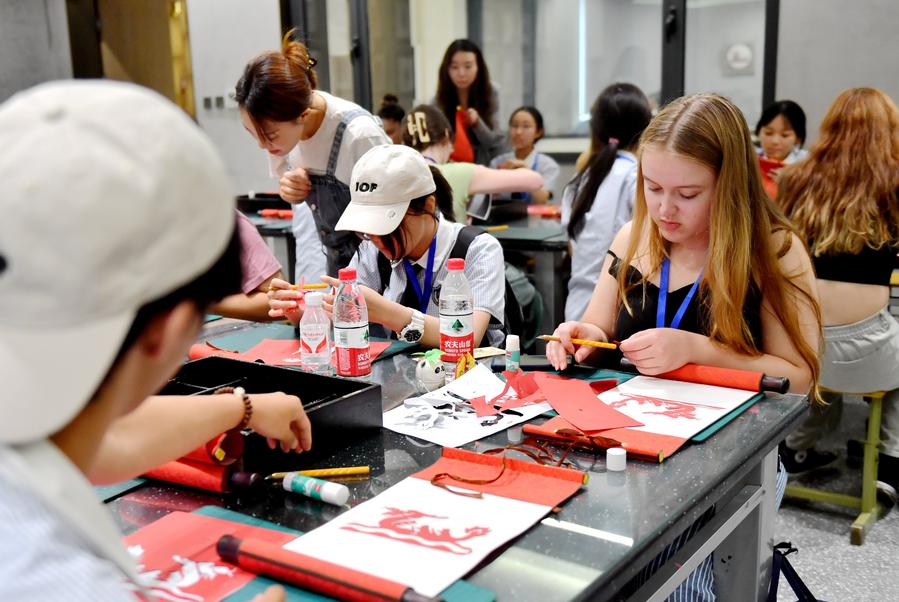Offsetting the Negative Atmosphere

The [main] Western characteristic is one of force, one of domination, and one of win-lose situations, as opposed to win-win situations that China is trying to advance, where the country would like to see everyone win by upholding the idea of common prosperity on a global level.
“Pessimism of the intellect, optimism of the will,” replied Immanuel Ness, Chair of the New York Peace Council and a professor of political science at Brooklyn College of the City University of New York in the United States, when asked about his take on the future of China-U.S. relations after Donald Trump takes over the U.S. presidency in January 2025, in a recent interview with Beijing Review reporter Ma Miaomiao. Edited excerpts of their conversation follow:
Beijing Review: With Donald Trump reelected, and considering his hardline campaign rhetoric on China, how do you view the future of China-U.S. relations?
Immanuel Ness: We live in a world that is becoming even more dangerous. We face possible nuclear wars and many other challenges like climate change, and we also have a world where there’s much poverty. These are urgent issues that must be addressed immediately.
Since the COVID-19 pandemic, living standards in the U.S. have declined as a consequence of once soaring inflation and a number of shortages. I would hope the Trump administration that comes to power will recognize these issues, because to resolve them and mitigate any kind of crisis, communication is essential—getting to understand the different perspectives that people have and concerns that specific nations have, such as the U.S. and Chinese concerns. That’s the first stepping stone of diplomacy.
I personally have great trepidation about the Trump administration and what to expect based on his nominees. However, we have to hold hope, in line with the motto of late Italian Marxist Antonio Gramsci: “Pessimism of the intellect, optimism of the will.”
Tension doesn’t serve the interests of most of the world. It doesn’t serve the interests of the two peoples in both the U.S. and China. I hope that there will be meetings, conferences and summits in the next four years that contribute to more peace and a better understanding of both sides. But that starts with exchange and the understanding that the other side is not the enemy.

One of Trump’s main objectives in increasing tariffs on Chinese imports during his first presidency was to bolster the U.S. economy. Have the tariffs been effective in doing so?
Over the last 30 years, the U.S. has increasingly depended on commodities from China. Hardworking Chinese people produce quality goods and commodities that are sold on the market at a very low cost. To be honest, I see that almost as a form of exploitation of Chinese workers by the U.S., because American workers are not going to produce commodities as well or as efficiently as the very advanced Chinese economy can.
Wages have gone up in China over the last decade, which is very positive, but commodity prices in the U.S. have not gone up so much. The underlying reason is the incredible technology and efficiency that the Chinese people and the Chinese Government have in producing goods.
People in the U.S. don’t want to see a diminution of trade; instead, they want to see more trade. Many companies and products that we use in the U.S., from cellular phones to automobiles, require Chinese parts and production.
The upshot of this is that if the [new] tariffs [which Trump plans to impose on China as soon as he takes office—Ed.] are imposed, it’s going be a tax on U.S. workers. It could even lead to a lot of instability within the U.S., because it will raise the costs of living even more. I think it’s very destructive in many ways. It will hurt average people around the world—and the working classes in particular.
The other thing is that China has much to offer to the U.S. For instance, its electric vehicle (EV) production is highly advanced and even many of the cars that Americans drive are produced here in China.
Policies initiated by U.S. incumbent President Joe Biden as well as the European Union against Chinese EVs are not only hurting local consumers, but are also harming the environment. If we are going to be mitigating climate crisis, the more electric automobiles being produced, the cleaner the air will be.
What needs to be done to offset the negative atmosphere?
One important thing is that we must boost mutual understanding. What can be done in this regard? People have to understand where other countries are and need to learn about other cultures, ways of life, societies and economic systems. Every country should have the right to choose the system that they want. And that’s sacrosanct, as far as I’m concerned.
The most important thing to do is to have exchanges among populations, so that they can actually be exposed to accurate information about China and any other countries as well, rather than the distortions that are advanced by Western media outlets, frequently referred to as the mouthpieces of those governments seeking to create higher levels of tensions between countries.

What we have in common is humanity. If people can engage in a way of exchange in an empathetic way, or at least putting yourself in the other person’s shoes, they will start to recognize those issues. And the only way to resolve that problem is to meet people, engage in exchange and move past all kinds of stereotypes that have been fabricated about China—and other countries around the world.
China has been increasing its efforts to promote global peace and stability, particularly through building partnerships with other nations in the Global South. What are the impacts of these efforts?
China has its characteristics; the West has its characteristics. The [main] Western characteristic, in my eyes, is one of force, one of domination, and one of win-lose situations, as opposed to win-win situations that China is trying to advance, where the country would like to see everyone win by upholding the idea of common prosperity on a global level.
Based on the policies it has pursued and its development over the last 75 years, China poses no threat to the U.S. It never has been a threat to any country and it always seeks peace. China believes in the independence of other countries, in their autonomy and their rights to decide and choose what kinds of governments they want—without interference.
The Chinese Government is very much interested in improving lives, not just those of Chinese people, but also those of people around the world, and has been successful in doing so. It has facilitated exchanges and developed ports, railroads, highways, airports, and beyond. Take Greece, for example. With the assistance from Chinese companies, the Port of Piraeus [in which Chinese shipping giant COSCO acquired a majority stake in 2016—Ed.] got improved so dramatically and the Greek economy and trade were enhanced, when the country was having a serious economic crisis back then.
If anybody cares to do the research, they will find that China is the leading force internationally for development, for sustainability, and it advocates dealing with countries on an equal basis, as opposed to one country having dominance over other countries.
 Facebook
Facebook
 Twitter
Twitter
 Linkedin
Linkedin
 Google +
Google +










